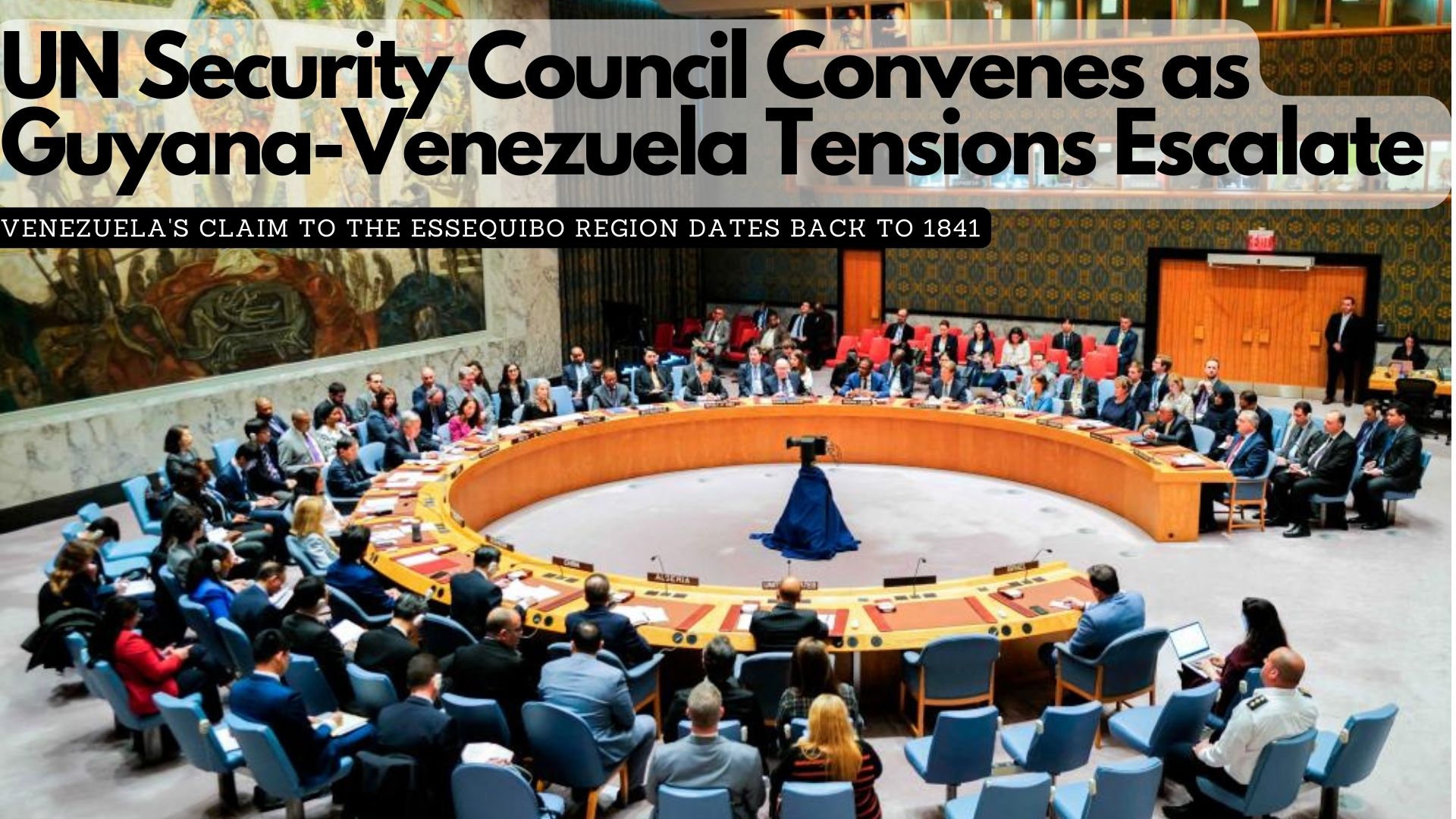The United Nations Security Council has voiced its concern regarding the escalating tensions between Guyana and Venezuela over the Essequibo region. This area, spanning approximately 160,000 square kilometres of densely forested land, constitutes two-thirds of Guyana’s territory and is inhabited by around 125,000 of its 800,000 citizens.
The roots of this dispute trace back to the 19th century, when Guyana was under colonial rule. Venezuela’s claim to the Essequibo region dates back to 1841, when it asserted that the British Empire had encroached on Venezuelan territory during the acquisition of the territory of then-British Guiana from the Netherlands. Venezuela has contested the validity of the 1899 Paris Arbitral Award, which delineated the border between Venezuela and British Guiana.
In response to recent developments, Guyana’s President, Irfaan Ali, submitted a letter to the UN Security Council on April 5, requesting a meeting to address the situation. President Ali highlighted Venezuela’s enactment of the “Organic Law for the Defence of Guayana Esequiba,” signed by President Nicolás Maduro on April 3, as evidence of Venezuela’s intent to annex a significant portion of Guyana’s sovereign territory.
The Security Council convened in private on Tuesday to deliberate on these recent developments in the territorial dispute.
